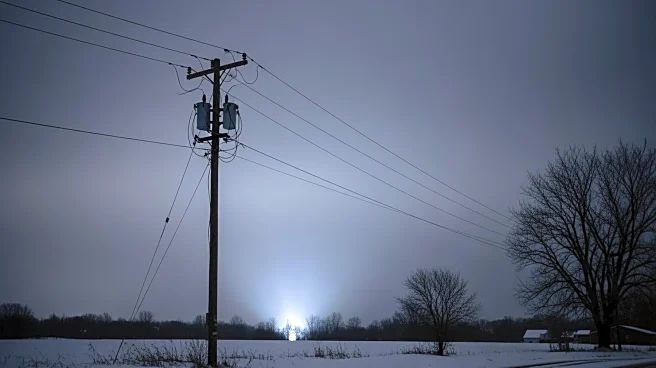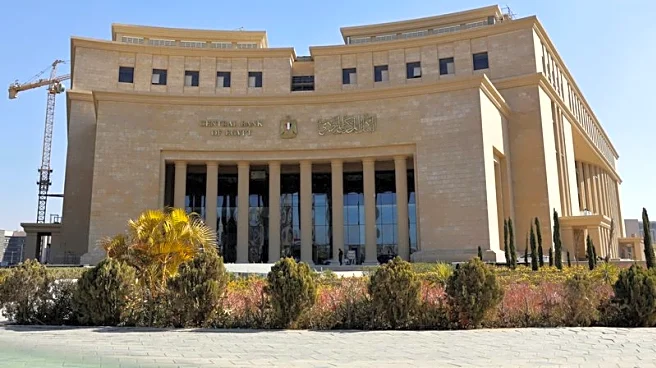What is the story about?
What's Happening?
The California Energy Commission has decided to postpone the implementation of penalties on oil companies for excessive profits until 2030. This decision follows the announcement of closures by two major oil refineries, which account for approximately 18% of the state's refining capacity. The commission was granted the authority to impose such penalties in 2023 as part of Governor Gavin Newsom's initiative to curb climate change and hold oil companies accountable for high profits. Despite the delay, the commission plans to establish rules requiring refineries to maintain a minimum fuel reserve to prevent shortages during maintenance periods. The postponement is seen as a measure to stabilize the fuel market and protect consumers from price spikes.
Why It's Important?
The delay in implementing penalties on oil companies is significant as it reflects the challenges California faces in balancing its climate goals with the need for a stable fuel supply. The decision is a temporary reprieve for the fossil fuel industry, which has been under scrutiny for high profits amid record gas prices. Critics argue that the postponement could lead to greater price volatility, while supporters believe it provides necessary stability during the transition away from fossil fuels. The move also highlights the complexities of managing energy policy in a state with the highest gas prices in the nation, driven by taxes and environmental regulations.
What's Next?
The California Energy Commission will continue to develop regulations to ensure refineries keep adequate fuel reserves. Meanwhile, the state will focus on transparency in the oil and gas market, as mandated by the law signed by Governor Newsom. The commission's decision may prompt further discussions on how to balance environmental goals with economic realities. Stakeholders, including consumer advocacy groups and the oil industry, are likely to engage in debates over the future of energy policy in California. The commission's actions will be closely monitored as the state navigates its energy transition.
















